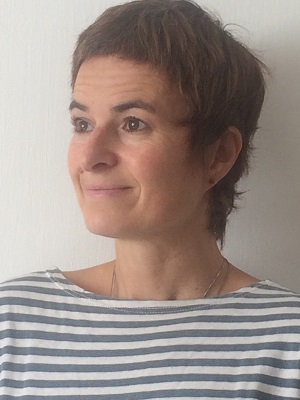About me – Joelle Kilimnik
Joëlle Kilimnik
I am a graduate of the Free University of Brussels in Linguistics, Columbia University (New York) in English and Comparative Literature and the Belgium Institute of Gestalt therapy as a Gestalt psychotherapist. I have shared my time between my private psychotherapy practice and managed-care settings in many different areas of the field.
For 10 years, I met families and led therapeutic groups within the framework of a social center dedicated to preventing and dealing with domestic violence and relationship disputes. Central to this job, was a wide range of collaborations with physicians, psychiatrists, social workers, other social centers, schools, youth support services, mental services and more, and I am thankful for this network of professionals that was and remains a great resource for me today.
Many people ask me, how do I think about psychotherapy, and I like to think about is as inscribed within a social and transgenerational field, in other words “going beyond the framework of a single individual.” As a Gestalt Therapist, I consider the person from a holistic point of view, meaning from the point of view of one’s body, affect, emotions, social relationships, cognition and (if relevant) to the person, his/her/their spiritual states. Put in simplest terms, “we humans” have a lot of different parts to us”, and I bring that into my focus for the purpose of meeting each person in their entirety since this is what “gestalt” means, “a total” or “whole.” I am always striving to maintain a total view of the person situated in the world.
Having worked in a multidisciplinary team, also as co-therapist, notably with psychotherapists trained in the systemic approach, I have sharpened my ability to consider « the problem » within a bigger landscape, to identify the multiple interwoven aspects, in brief to find how to orient myself in each situation. In addition, I am trained in the genogram therapy, the narrative therapy (traditional fairy tales), in the gestalt therapy with children, the sandplay therapy, and in how to intervene in situations of bullying and harassment.
Other life experiences, such as a 20 years practice of Tai Chi Chuan and Qi Gong, my interest in creative expression within all artistic forms equally nourish my work.
Putting my genuine and open curiosity towards human beings at your service, I wish to accompany you as adequately as possible to finding better adjustments in your life, and if not for erasing the problems you brought in, at least for living them in a different way, by finding some meaning, until you find a desired concrete change in your life.
Clients who have benefited from my way of working have said they found it reviving, giving new impetus to what has been frozen, or slowed down. Engaged in the therapeutic relationship, I walk next to you. Starting the work with a systemic analysis of the request(s), this will help us throughout the work to keep /change /find new directions.
I practice in French and English in Etterbeek (Brussels), near the Cinquantenaire. I offer individual therapy sessions for adults and children (starting from 6 years old) and parental guidance sessions.
Hereafter are some of the themes encountered (adults) :
- Relational problems encountered in the professional of personal environment;
- Sexuality, identity, belonging feelings;
- Burnout, lack of desire, stress, angst, mistreatment, violence, harassment, bullying;
- Depressive feelings;
- Loneliness, anxiety, insecurity, guilt, shame feelings;
- Low self-estime;
- Separation, conflictual, mourning situations, addictive behaviors;
- Bipolar, Obsessive compulsive disorders, food disorders, dissociations and post-traumas.
For children, most of the time, either parents or schools are bringing the request. They have noticed a behavior change or somatization on the child’s behalf. It might be related to parents’ separation, loss of closed relative, school difficulties for example. With children I use sandplay therapy and play therapy (through drawings, plasticine, etc…). I find it particularly helpful, especially for children, who, depending on age and personality, might not always have direct access to the verbal expression of « what goes wrong for/with them ».
This type of work supports me helping the child identifying what should change for him, what would be a more comfortable, more balanced way of living. Parents constitute the direct environment of the child. I work in close collaboration with them as they are the close witnesses of the child’s evolution.
As supervisor, I accompany people engaged in any type of help relationship, be them psychotherapists or social workers. As a trainer I take in charge part of the training for psychotherapists-to-be, at the Belgium Institute for Gestalt Therapy.

